Is there a sexist data crisis?
- Published
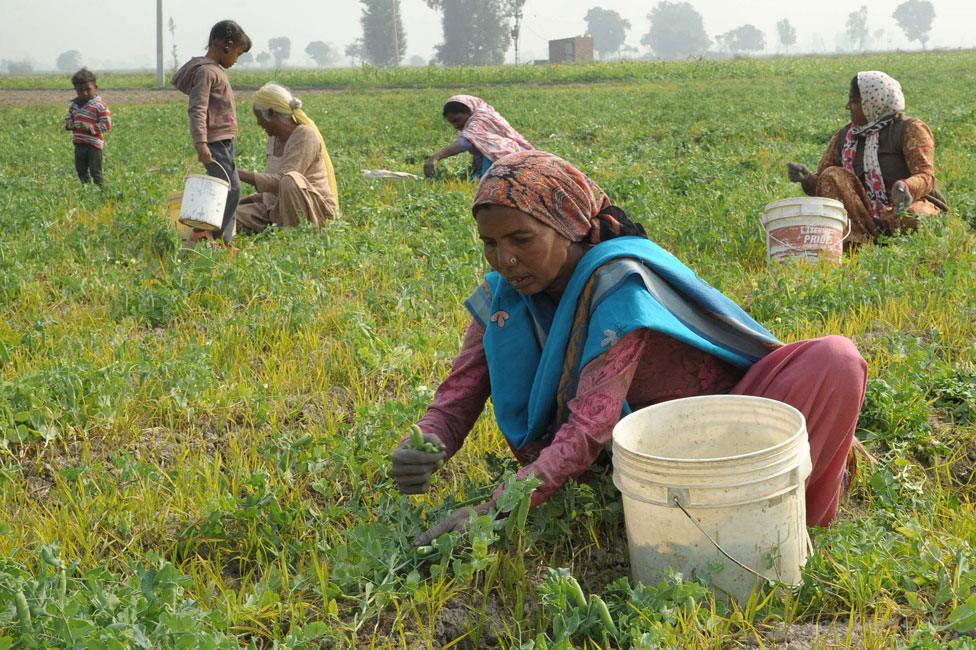
Collecting peas in Amritsar, India
There is a black hole in our knowledge of women and girls around the world. They are often missing from official statistics, and areas of their lives are ignored completely. So campaigners say - but what needs to be done?
"We believe that there is a sexist data crisis," says David McNair, Director of Transparency at the One Campaign, a group that fights poverty.
"The reason why it is sexist is that women and girls are disproportionately left out of data collection. They are uncounted, therefore they don't matter."
Former US Secretary of State and presidential hopeful Hillary Clinton agrees.
"For too many countries we lack reliable and regular data on even the basic facts about the lives of women and girls," she said at a data conference in Washington, in 2012.
"Facts like when women have their first child. How many hours of paid and unpaid work they do, whether they own the land they farm.
"Since women make up half the population, that's like having a black hole at the centre of our data-driven universe."
Most countries collect data from labour force surveys and household surveys, but the style of the questions often date back to just after World War Two says Mayra Buvinic, an expert from the Center for Global Development, a think tank.
"These surveys were constructed, designed with a particular bias. They were biased towards formal sector employment which is work that men do," she says.
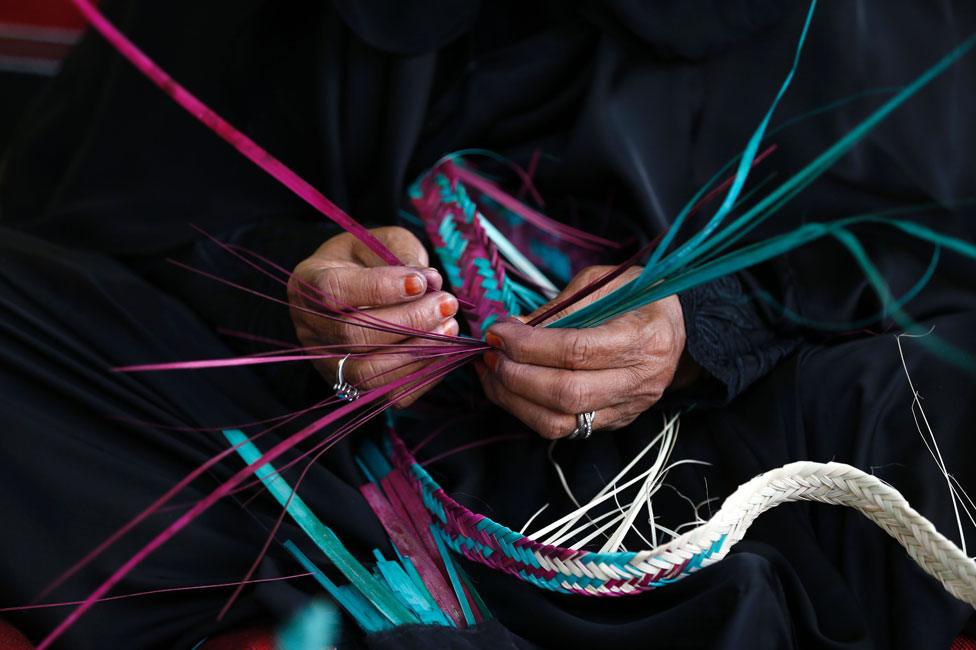
Emirati woman weaving palm fronds
Buvinic argues that many women get missed out because they consider themselves primarily as housewives, when in reality they work on farms, do part-time jobs and seasonal work or run their own businesses.
She points to a labour force survey in Uganda in the 1990s to make her point.
One year, the survey asked people only for their "primary" activity or job. A year later they added a new question to the survey, asking people to name their "secondary" activity.
The recorded number of workers in Uganda suddenly went up from 6.5 million to 7.2 million workers.
"This means that 700,000 workers had been missed," she says, adding that most of these workers were women.
But as well as noting that surveys do not ask the right questions, she also argues that we should be measuring traditionally unpaid work such as cleaning and cooking and including it in economic statistics.
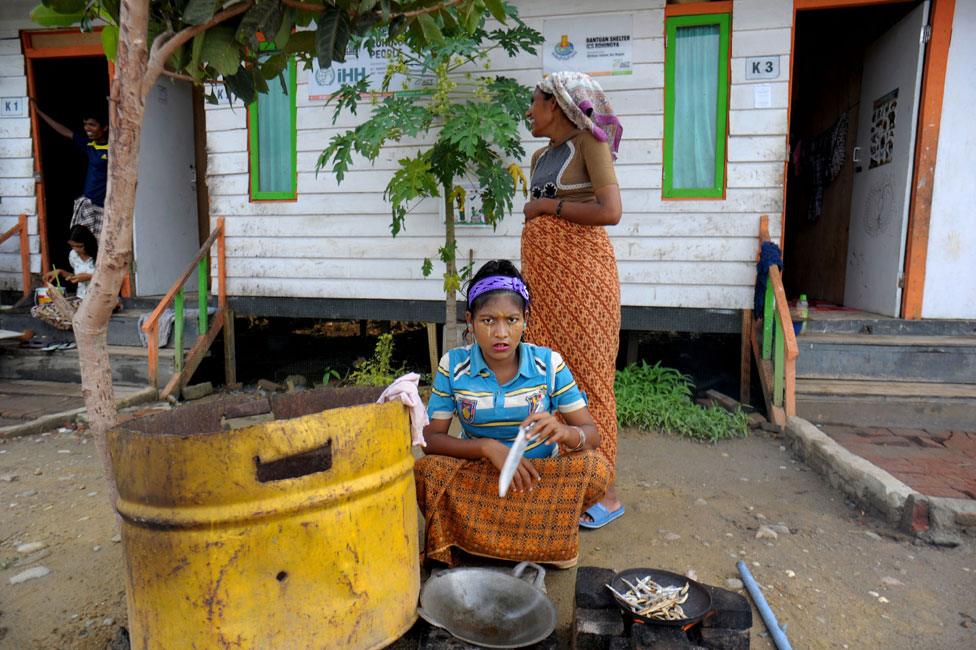
Rohingya refugees from Myanmar get ready to cook dinner in Aceh, Indonesia
There are other problems too, Buvinic says. Not all countries collect statistics on other aspects of women's lives, such as domestic violence or maternal mortality rates, and when they do collect this data they often do it in different ways, making international comparisons difficult.
It's not only government statistics that fall short, the campaigners say. There are many statistics that are collected without being broken down by sex, which makes it hard to tell when women are not being treated equally.
"Until recently, very few banks disaggregated their customer data by sex, leading to difficulties in understanding reasons behind the persistent gender gap in access to and use of financial services," says Megan O'Donnell, one of Buvinic's colleagues at the Center for Global Development.

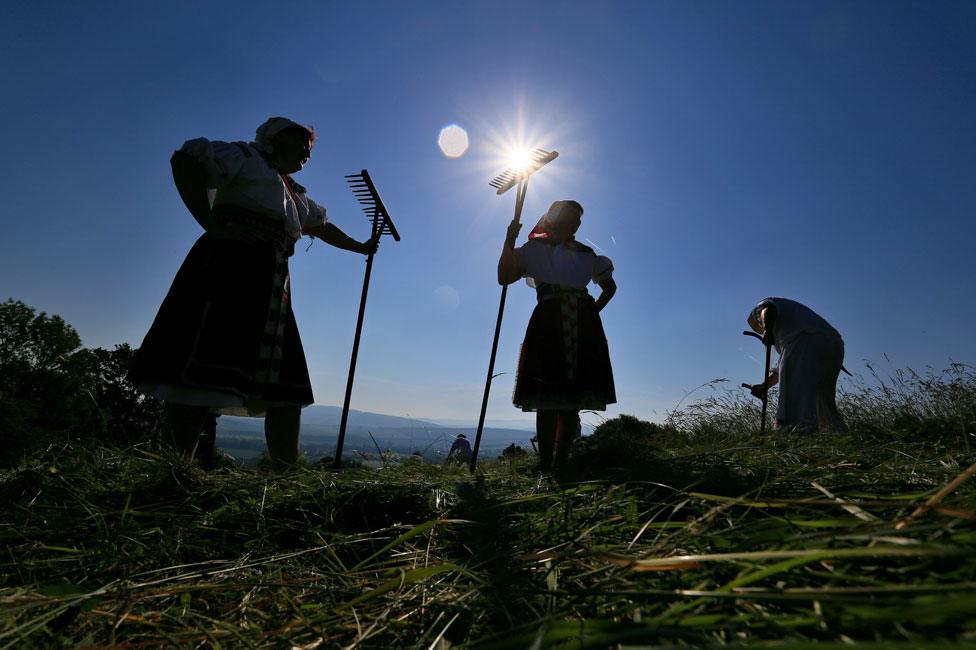
Women harvesting in Moravia, Czech Republic
More or Less is broadcast on BBC Radio 4 and the World Service
Download the More or Less podcast
More stories from More or Less

She also says there is a problem with health experiments and statistics.
"Men have been the traditional test subjects when physicians study diseases and other health conditions. Because women have not been - and women's metabolic rates differ - we haven't had an equally clear understanding of how treatments, medications, etc are likely to affect them."
If we don't count something, we can't tackle the problem, David McNair argues.
For example, he says, it will be hard to know whether the UN's Sustainable Development Goals on violence and sexual exploitation are reached if we don't collect the right numbers.
But good statistics are also needed to help governments plan and invest, he argues. A government that doesn't count maternal mortality is not going to know the extent of the problem, and therefore how to tackle it.
It will also be less easy for journalists and civil society to hold governments to account.
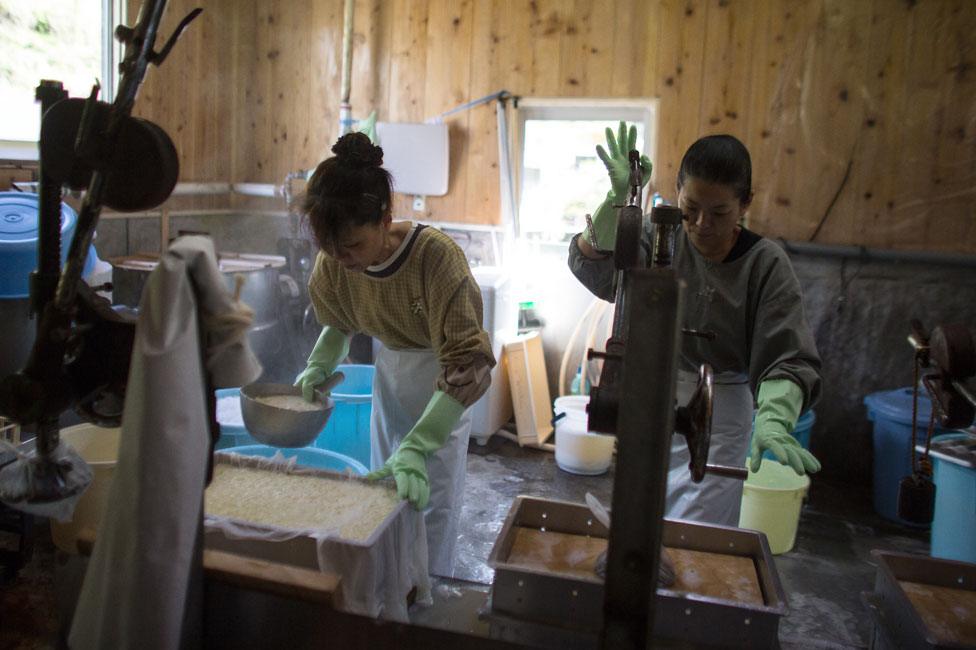
Women working at a Japanese tofu factory
McNair says that some politicians know this.
"If you have robust data then you can be held to account for your decisions. There are people who have a vested interest in not having that information in the public domain," he says.
For instance, if employment figures are going to make a politician look bad, they may not want them to be collected.
It's also easy for politicians to cut money for collecting statistics at a time of pressure on budgets. They can be photographed next to a school they have funded, but may not get much credit for funding a good statistical service.
Some progress is being made.
Recently the UN's International Labour Organisation (or ILO) held a conference, where labour statisticians agreed how to start collecting data on unpaid and domestic work, for example time spent cleaning your house.
Ten countries have volunteered to take part in a pilot to use this new framework to measure unpaid work.
So in future we may have a better idea of the work being carried out by women.
Subscribe to the BBC News Magazine's email newsletter to get articles sent to your inbox.